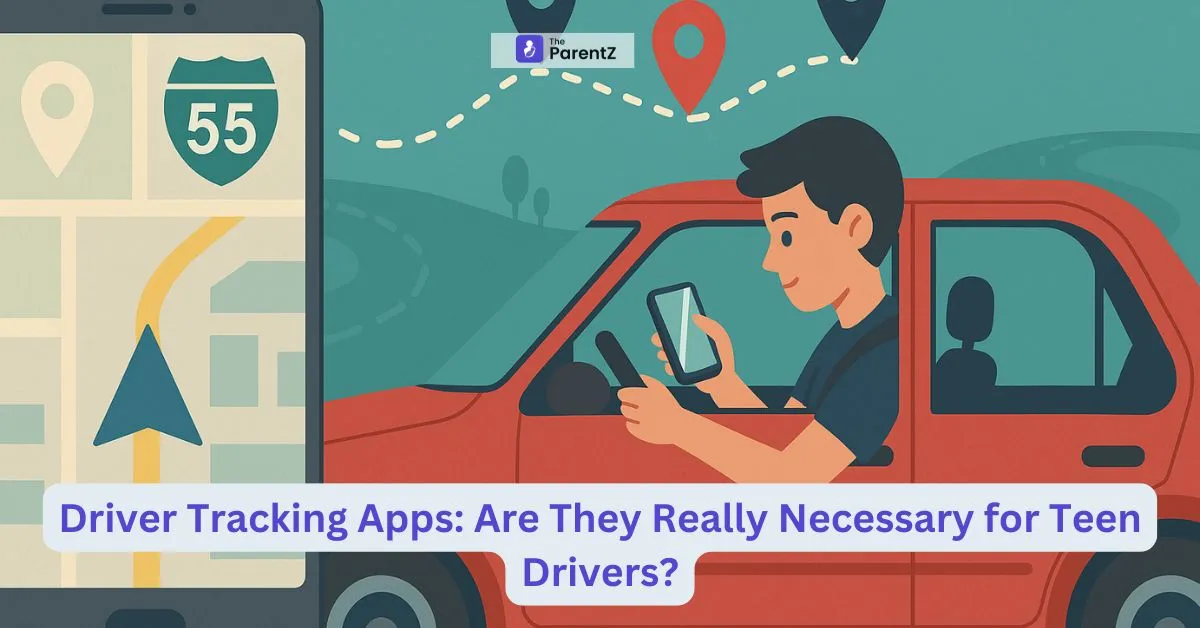Introduction
With road accidents being one of the leading causes of teenage fatalities worldwide, parents are increasingly turning to driver tracking apps to ensure their teens drive safely. These apps promise real-time tracking, speed monitoring, and even distraction alerts, but are they truly necessary? Do they enhance safety or simply invade privacy and breed distrust? This article explores the pros, cons, and alternatives of driver tracking apps for teen drivers.
Understanding Driver Tracking Apps
Driver tracking apps are mobile applications designed to monitor and analyze a driver's behavior. They typically offer features like:
- Real-time GPS tracking: Allows parents to see where their teen is driving.
- Speed monitoring: Alerts when the driver exceeds speed limits.
- Geofencing: Notifies parents if the teen enters or exits a pre-defined area.
- Phone usage alerts: Detects if the driver is using their phone while driving.
- Hard braking and acceleration tracking: Identifies reckless driving behaviors.
The Benefits of Driver Tracking Apps
1. Enhanced Safety and Risk Reduction
Statistics show that inexperienced drivers are more likely to be involved in road accidents. Driver tracking apps provide valuable insights into driving habits, enabling parents to address risky behavior before it leads to an accident. Features like speed alerts and phone usage detection help reduce the chances of distracted driving.
2. Parental Peace of Mind
One of the biggest advantages of these apps is the reassurance they provide to parents. Knowing where their teen is and how they are driving can help alleviate anxiety, particularly for parents of newly licensed drivers.
3. Encouraging Responsible Driving
Many apps use gamification techniques, offering rewards for safe driving habits. Some insurance companies even provide discounts for good driving behavior monitored through these apps. This incentivizes teens to follow traffic laws and adopt safer driving habits.
4. Emergency Assistance
In case of an accident, some tracking apps provide automatic crash detection and emergency contact notifications. This can be life-saving in situations where a teen driver may not be able to call for help themselves.
The Downsides of Driver Tracking Apps
1. Privacy Concerns
Teens may feel that tracking apps invade their privacy and demonstrate a lack of trust from their parents. Constant monitoring can create tension between parents and teens, potentially leading to rebellious behavior.
2. False Sense of Security
While tracking apps provide data, they cannot prevent accidents. Parents might rely too heavily on these apps, assuming their teen is safe just because they are being monitored, rather than focusing on building safe driving habits through education and practice.
3. Technical Limitations
Tracking apps are not foolproof. GPS errors, phone battery issues, or app malfunctions can result in inaccurate data. Some teens may also find ways to disable the app or leave their phone behind to avoid being tracked.
4. Potential Over-Dependence on Technology
Parents may become overly dependent on tracking apps rather than engaging in discussions about responsible driving. Open communication and trust-building are key factors in helping teens become safer drivers.
Alternatives to Driver Tracking Apps
If parents are hesitant about using driver tracking apps or want a balanced approach, here are some alternatives:
1. Graduated Driving Programs
Implementing a step-by-step driving program where teens earn more driving privileges based on safe behavior can be effective. This method helps build experience gradually without over-reliance on monitoring apps.
2. In-Person Coaching and Education
Rather than relying solely on apps, parents can focus on teaching their teens about road safety through supervised driving lessons, defensive driving courses, and regular discussions about safe driving habits.
3. In-Car Safety Technology
Many modern cars come equipped with built-in safety features like lane departure warnings, automatic braking, and speed limit alerts. Investing in a car with these safety features can provide similar benefits to tracking apps without the privacy concerns.
4. Trust-Based Agreements
Having an open conversation and setting clear rules about driving behavior can sometimes be more effective than an app. Establishing agreements, such as no texting while driving and curfew times, helps build trust and responsibility.
Are Driver Tracking Apps Necessary?
The necessity of driver tracking apps depends on individual circumstances. For some families, they provide an extra layer of security and help reinforce good driving habits. For others, they may feel too intrusive and undermine trust. A balanced approach—combining technology with education, communication, and experience—may be the best solution for ensuring teen driver safety.
Conclusion
Driver tracking apps can be a valuable tool in promoting safe driving among teens, but they are not a one-size-fits-all solution. The key is to find a method that ensures safety while respecting privacy and fostering responsible driving habits. Whether through tracking apps, parental coaching, or a mix of both, the ultimate goal remains the same: keeping teen drivers safe on the road.









Be the first one to comment on this story.